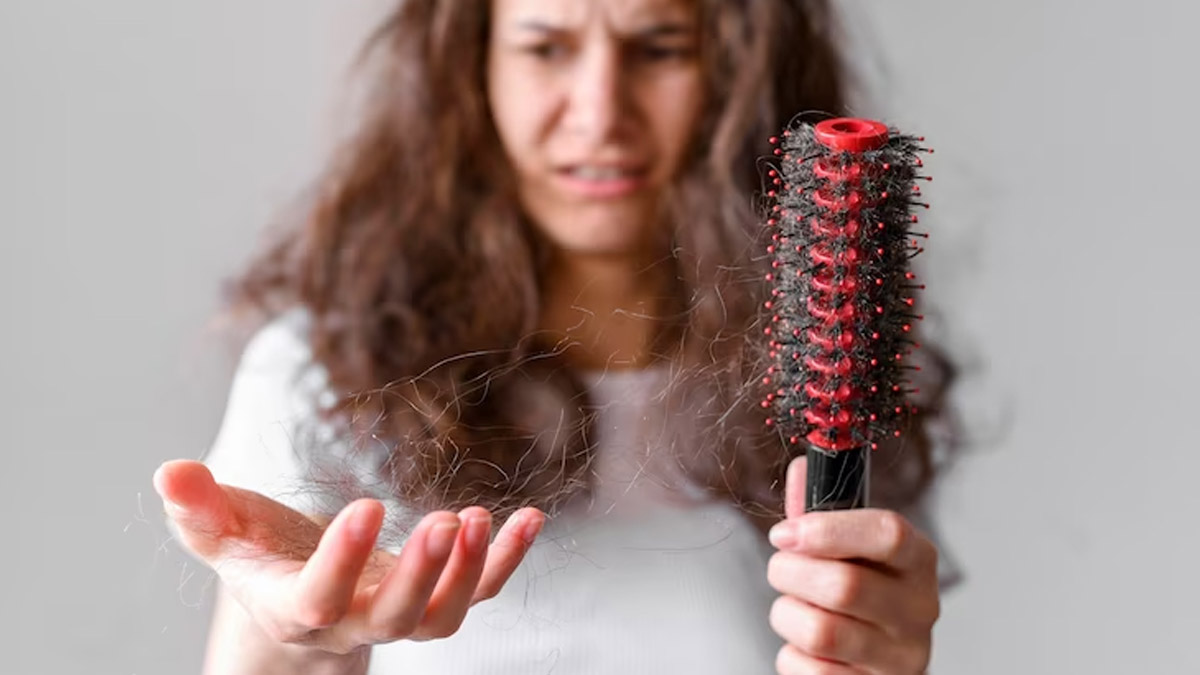
Hair loss, medically known as alopecia, is a common problem that affects millions of people around the world. It can be caused by a variety of factors, including genetics, medications, and stress. Hair loss can be caused by a variety of factors. Some of the most common causes include:
Genetics
Genetics are the most common cause of hair loss, as many people are genetically predisposed to balding. Genetic predisposition to hair loss is a condition known as androgenic alopecia and is caused by the influence of hormones on hair follicles. These hormones cause the follicles to shrink and eventually stop producing new hair. In people who are predisposed to hair loss, these hormones can cause the follicles to become dormant even at an early age. As a result, hair loss may be more pronounced in individuals who have a family history of hair loss.
Also read: Can Following A Weight Loss Diet Cause Hair Loss?
Stress
Telogen effluvium is a disorder that causes hair loss as a result of stress. This occurs when stress causes a significant number of hair follicles to enter a resting stage, resulting in excessive hair shedding. According to studies, the stress hormone cortisol is responsible for the disruption of the normal hair growth cycle.

Hormonal Imbalances
Hormonal imbalances are one of the reasons behind hair loss in both men and women. When hormones become imbalanced, they can cause the body to produce too much of a hormone called dihydrotestosterone (DHT). This hormone weakens the hair follicles, making them more prone to breakage and eventually resulting in hair loss. In women, hormonal imbalances can also lead to hair thinning due to a decrease in estrogen, which can cause the hair to become dry and brittle. Additionally, an excess of the hormone androgen can cause hair to fall out.
Medical Conditions
As a side effect, certain drugs can cause hair loss. Common medications that can cause hair loss include chemotherapy drugs, blood thinners, birth control pills, antidepressant medications, antibiotics, and hormones. In addition, some people may experience hair loss from taking high doses of vitamin A or from taking medications to treat high blood pressure, gout, or arthritis.
Nutritional Deficiency
Nutritional deficiency can lead to hair loss in a variety of ways. Poor nutrition can lead to a lack of proteins, vitamins, and minerals which are essential for healthy hair growth. A lack of vitamins and minerals can cause hair to become brittle and weak, making it more susceptible to breakage and shedding. An inadequate diet can also induce hormonal imbalances, which can result in hair loss. Deficits in certain nutrients, such as iron and zinc, can also cause anaemia, which can contribute to hair loss.
Also read: How A Treatment For Hair Loss Destroy Your Sex Drive
Styling Damage
Excessive styling of the hair can cause hair loss due to damage to the hair follicles. This occurs when styling tools, such as curling irons, hot rollers, and blow dryers, are used too often or too hot, leading to hair breakage. Other styling techniques, such as tight braids and ponytails, can cause traction alopecia, which is a type of hair loss caused by pulling on the hair. Chemical treatments, such as colouring, bleaching, and perms, can also cause hair damage and breakage.

Treatment Options
Hair transplants are becoming popular as a treatment option for hair loss. This procedure involves removing healthy hair from one area of the scalp and transplanting it to an area of baldness. This can help to stimulate hair growth and increase the density of the hair.
For those who cannot or choose not to undergo hair transplant surgery, there are several other non-surgical treatments available. These include laser therapy, which helps to stimulate hair growth, as well as medications, such as minoxidil, which can help to slow down or stop hair loss.
Whatever the cause of hair loss, it is important to discuss treatment options with a doctor or dermatologist to find the best option for each individual. With the right treatment, hair loss can be managed and even reversed.
Image credit-- FreePik







